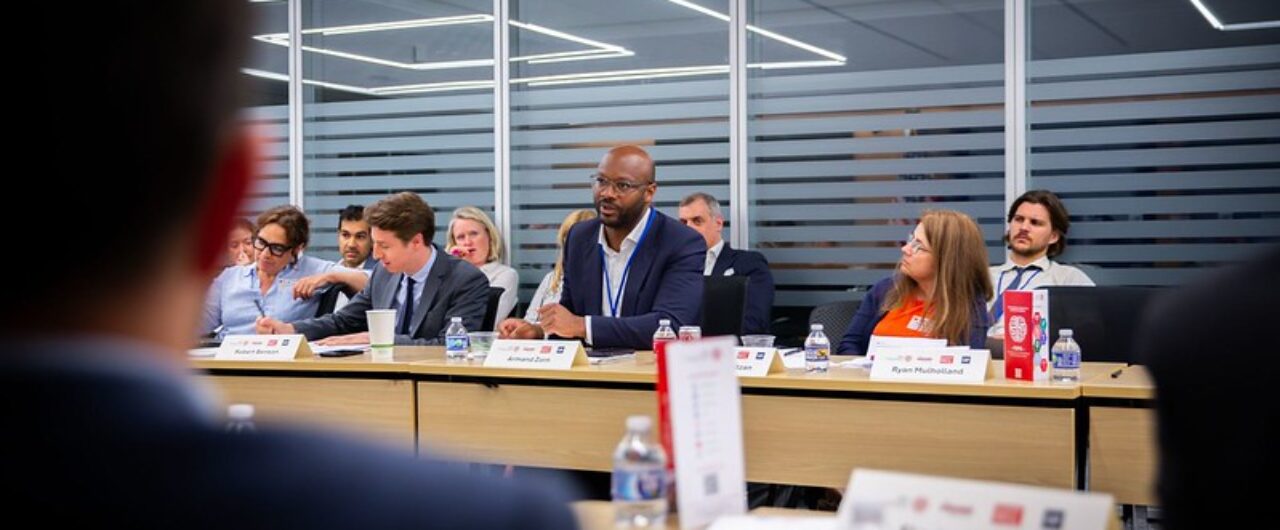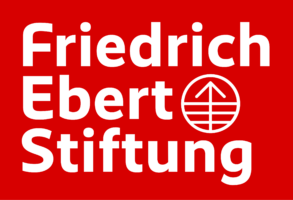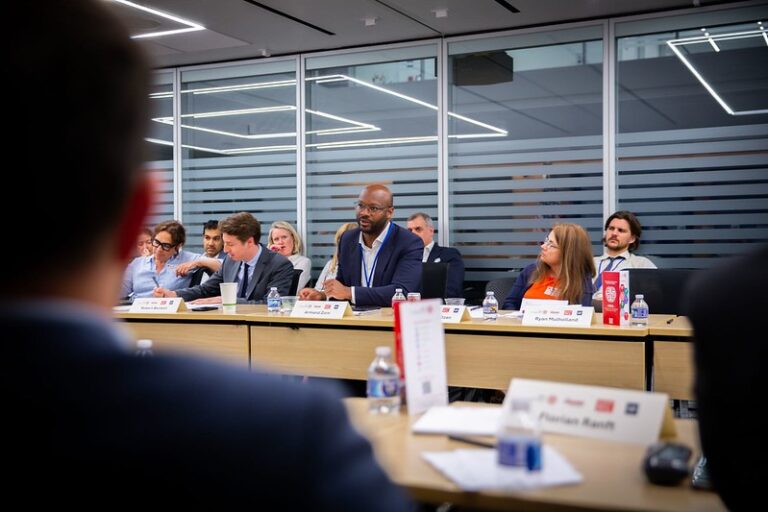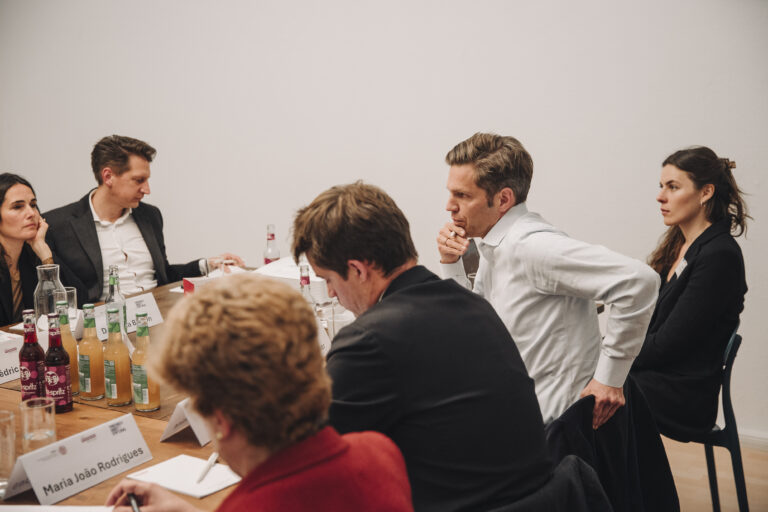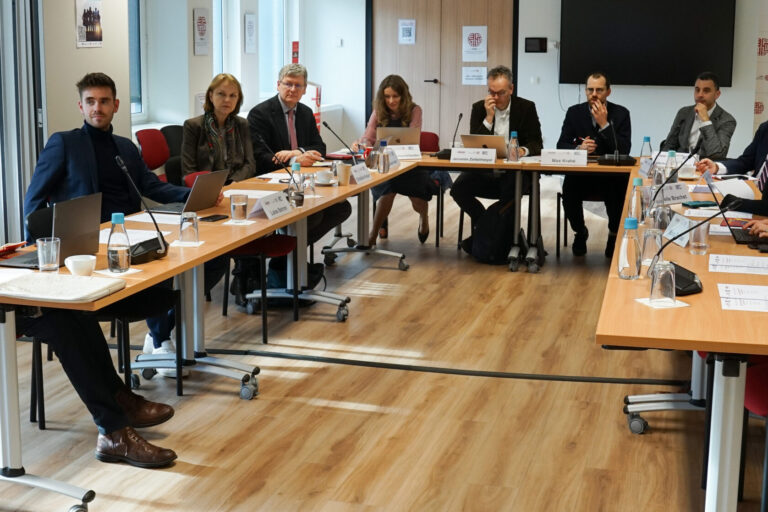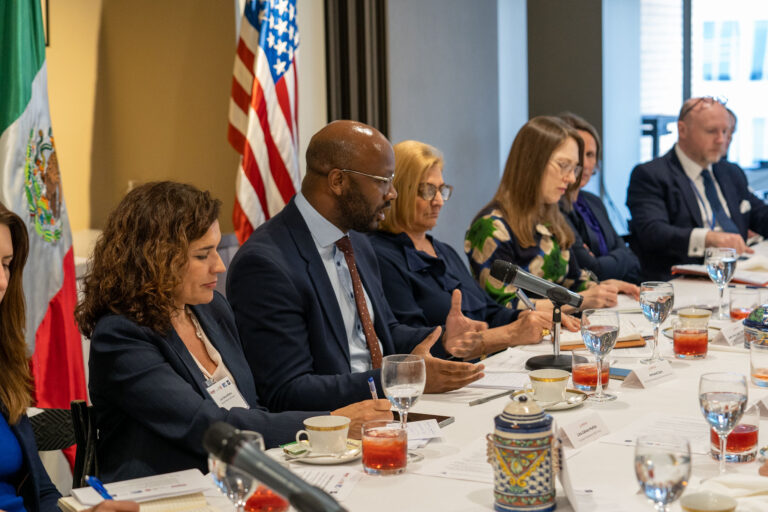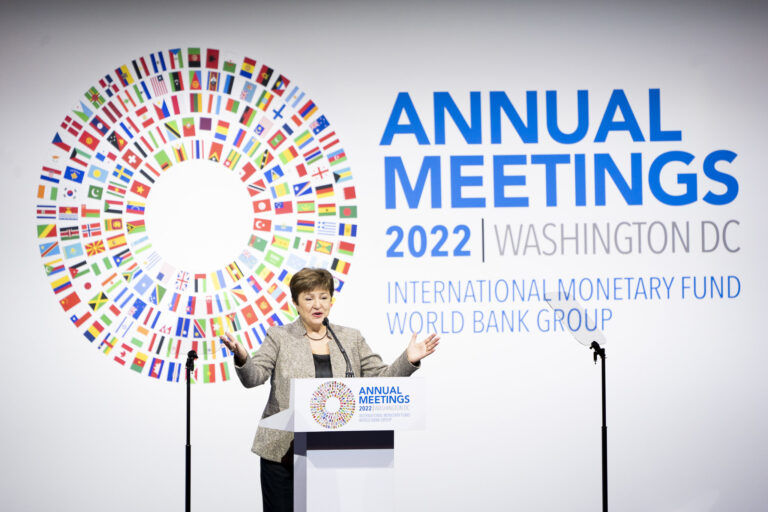With Donald Trump’s return to the White House, the geopolitical and economic coordinates of the West have shifted significantly. In an era marked by global insecurity, geopolitical friction, and economic transformation, the Progressive Economics Network (PEN) reconvened on 23 and 24 April 2025—this time in Washington, D.C., alongside the Spring Meetings of the IMF and World Bank. PEN is a joint initiative by the Foundation for European Progressive Studies (FEPS), Friedrich-Ebert-Stiftung and Das Progressive Zentrum (DPZ).
The global trade and diplomatic landscape is undergoing major changes, and the EU and its allies need to get their response right. The new EU Commission is advancing a competitiveness agenda and plans for economic security—but one of the biggest questions remains: What happens to trade, and what are the broader implications for security, industries, and workers? Beyond trade, the US and EU may diverge on China and global partnerships, especially as access to critical raw materials becomes central to the green transition. But while differences are inevitable, transatlantic cooperation can’t just be written off. The challenge now is to find common ground beyond high-level politics—between parliaments, trade unions, and civil society—to keep the partnership strong and focused on shared prosperity and security.
Under the headline Trade, Trust and Transition – Shaping the Next Transatlantic Chapter, the Progressive Economics Network (PEN) came together for a one-and-a-half-day meeting in Washington, D.C., hosted at the Center for American Progress (CAP). Held in the fringes of the 2025 World Bank Group/International Monetary Fund Spring Meetings, the meeting included three main sessions on:
- The Emerging Trade Regime: Aligning on Shared Objectives
- The Geoeconomics of Sustainability: Forming Strategic Partnerships
- Guns or butter? Balancing Priorities in the Transatlantic Relationship
Guns or butter? Balancing Priorities in the Transatlantic Relationship in times of Military Keynesianism
One theme stood out as particularly urgent during the discussions: the return of Military Keynesianism as an emerging paradigm in fiscal and defence policy. Given rising geopolitical insecurity—particularly in light of Russia’s war against Ukraine, the looming U.S. withdrawal from Western security structures, and broader global power shifts—there is growing temptation to stimulate the economy through ramped-up defence spending.
But this trajectory comes with significant political, social, and economic risks—and it fundamentally clashes with the goals of a holistic progressive agenda as Isabella M. Weber, Associate Professor of Economics, University of Massachusetts Amherst, argued in a scene-setting presentation (see also here).
Further contributions were made by:
- Max Bergmann, Director of the Europe, Russia and Eurasia Program, Center for Strategic and International Studies (CSIS)
- Brando Benifei, Member of the European Parliament and Chair of the Delegation for Relations with the United States,
- Armand Zorn, Member of the German Bundestag for the Social Democrats (SPD), and
- Ben Lennon, Climate, Industry and Energy Advisor, European Trade Union Confederation (ETUC).
Key Takeaways: Why Progressive Leadership Requires More Than Tanks
1. Unbalanced Defence Budgets Risk Falling Short of Urgent Social and Climate Investments
In her keynote, Isabella Weber (University of Massachusetts Amherst) issued a sharp warning against the economic imbalance that comes with one-sided spending: a form of “Keynesianism for the military”—that is, debt-financed defence budgets without equivalent investments in education, care, infrastructure, or climate policy—undermines not just fiscal fairness but also social cohesion. Also, it is far from being the most effective way to boost the economy. Investments in social and green infrastructure come with a much higher increase in GDP than defence spending. This is because they create more jobs, increase household incomes, and stimulate broader demand across the economy than military spending.
2. European Solutions Needed: Fragmented Defence Spending Breeds Inefficiency
The transatlantic debate also made clear: the current practice of organising defence spending at the national level leads to redundancies, coordination failures, and missed opportunities for synergy. Building parallel military capacities across 27 EU member states is neither cost-effective nor strategically sound. What’s needed is a comprehensive European defence architecture—one that is efficient, democratically accountable, and leverages the strengths of member states at the European level.
3. Financing: Debt Without a Shared Budget?
Many EU countries have begun loosening their fiscal constraints—but only for defence spending, and often outside standard EU budget rules. What is still lacking, however, is a joint European defence budget, one that is democratically legitimised and socially equitable. Without such a common framework, the risk of solidarity erosion grows: fiscally stronger countries contribute more, while others are forced to finance defence spending through cuts in social programmes.
Rethinking Security Policy Through a Progressive Lens
The PEN meeting in Washington underscored a key lesson: Security is multidimensional. A progressive response to geopolitical crises cannot rely on rearmament alone. It must also invest in social cohesion, democratic resilience, and ecological transformation. The term “Military Keynesianism” is not merely an economic concept—it represents a fundamental political challenge: to get our priorities right.
Further Speakers Included:
- Bernd Lange, Member of the European Parliament and Chair of the Committee on International Trade (online)
- Liam Byrne, MP UK Parliament, Chair of Business and Trade Committee
- Elisabeth Baltzan, former Senior Advisor to the US Trade Representative
- Beth Burke, CEO of Canadian American Business Council
- Chris Roberts, Director Social and Economic Policy, Canadian Labour Congress (CLC) (online)
- Maria João Rodrigues, President, FEPS
- Lina Gálvez Muñoz, Member of the European Parliament; Vice-President, FEPS
- Bodo Ellmers, Program Director Financing for Development, Global Policy Forum Europe
- Daria Taglioni, World Bank, Research Manager, Trade and International Integration, Development Economics
- Max Neufeind, Head of Division “Fundamental Questions of Transformation; Societal Dialogue”, German Federal Chancellery
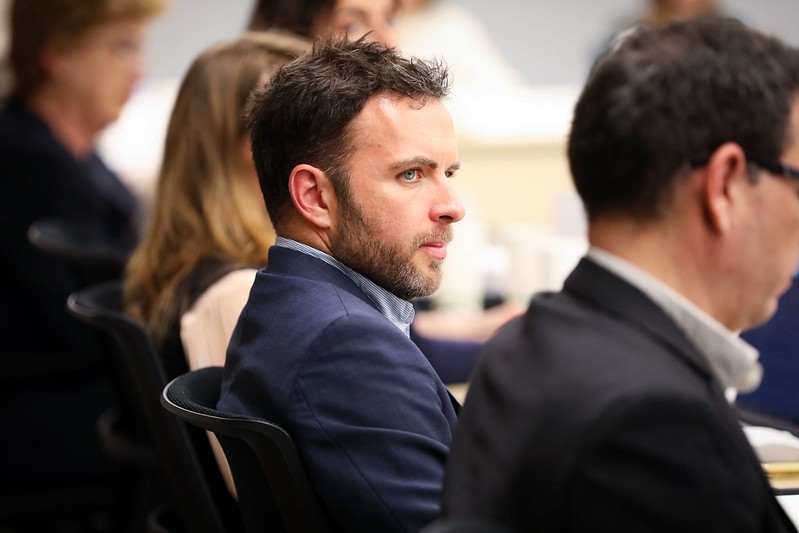

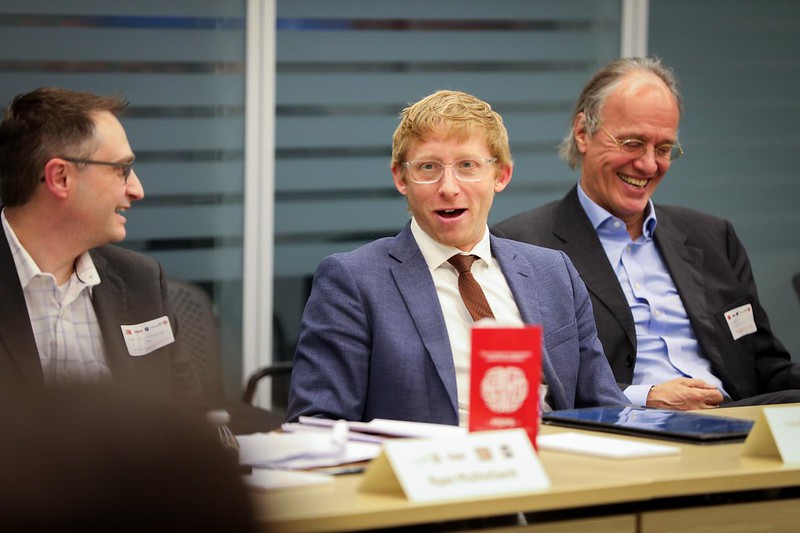
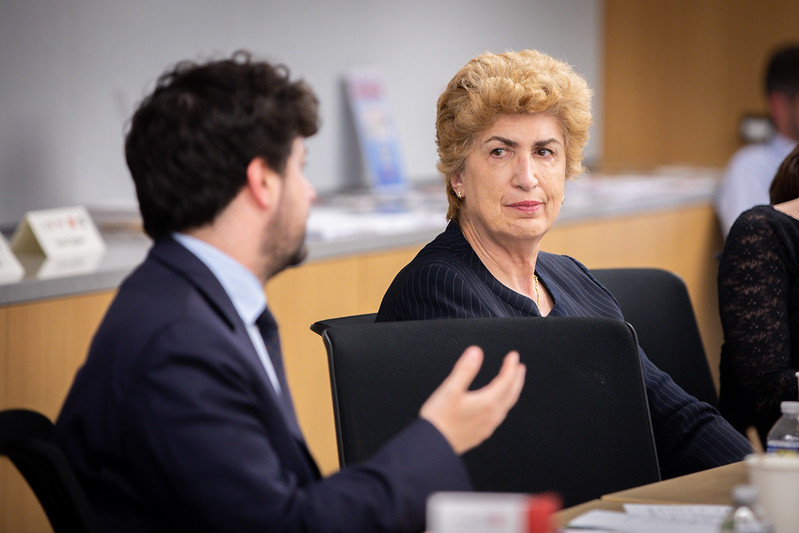
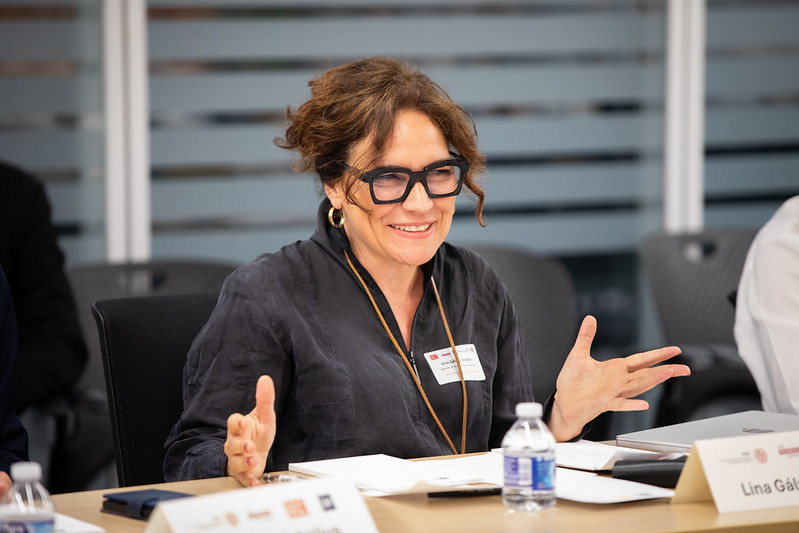
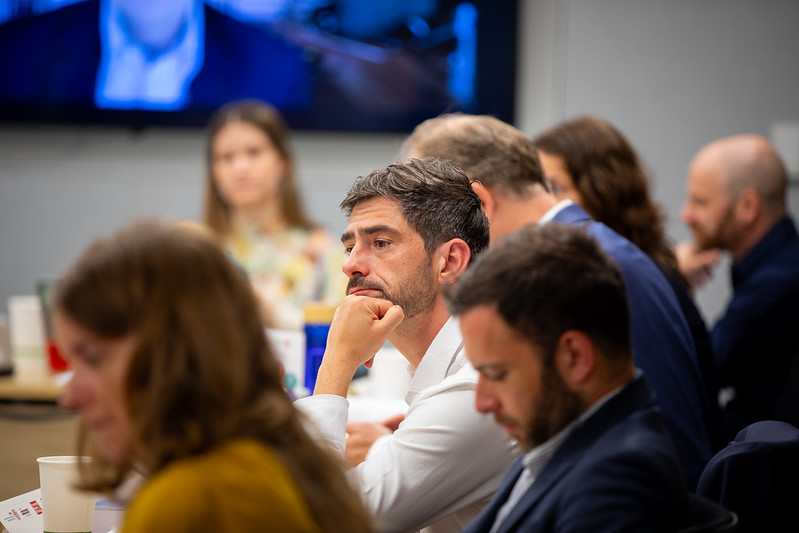

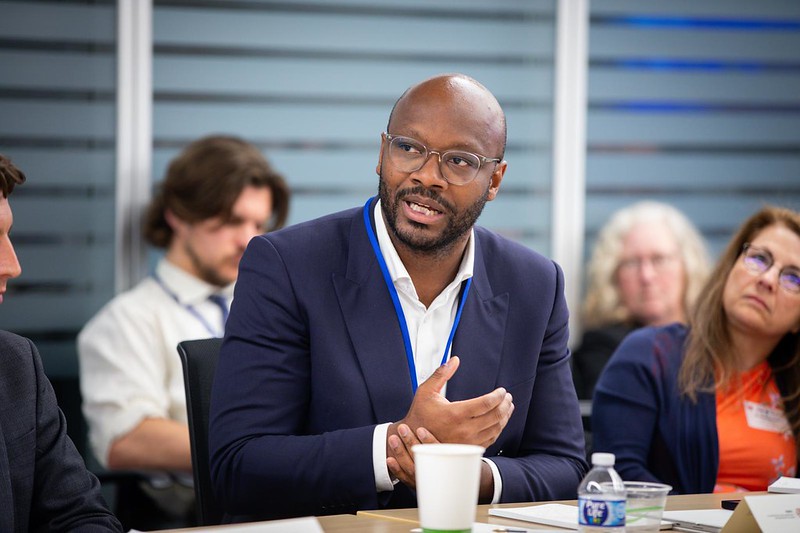
About the project
The Progressive Economics Network (PEN) is a joint initiative of the Foundation for European Progressive Studies (FEPS), the Friedrich-Ebert-Stiftung (FES) and Das Progressive Zentrum (DPZ) to advance the discussion of key economic issues by bringing together leading economic advisers, researchers, and decision-makers for open, frank, and private exchanges. The aim is to facilitate the brainstorming of innovative policy proposals on current economic challenges, with a focus on shaping progressive solutions.

